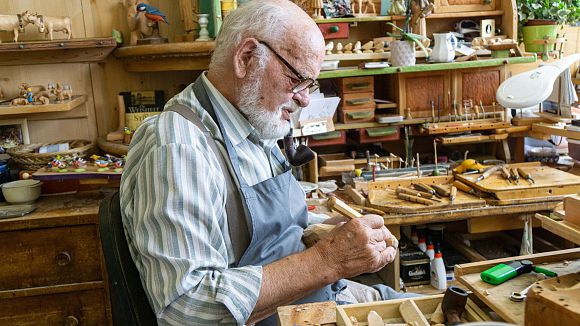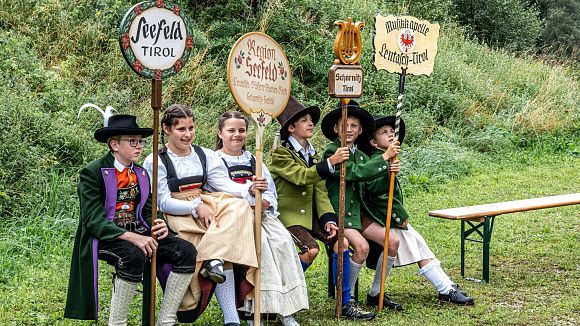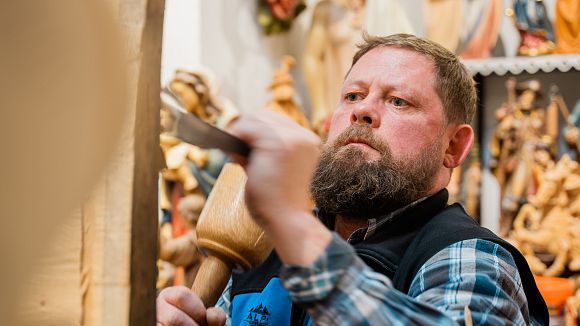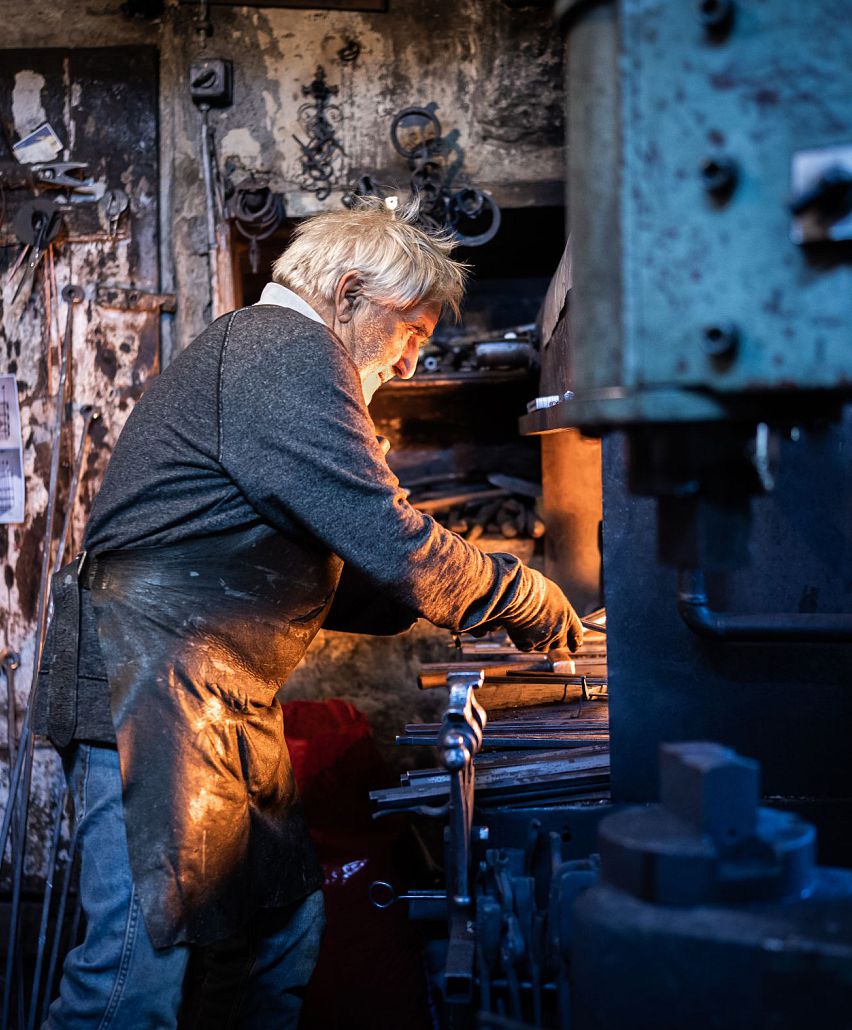
von Zeit.los Magazin
March 02, 2023
REGION-ORIGINAL
At the blacksmith: Alfons Neuner and his old craft
They still exist, the places where you suddenly feel transported back to another century. Alfons Neuner's forge in Mösern is one such gem, where the old-established craftsmanship and its contemporary expressions are at home.
It is a special place on earth where Alfons Neuner pursues his craftsmanship and artistic creativity. As one of the last of his guild, he has found the tools for a fulfilled life as a blacksmith with hammer, anvil and tongs. "I always liked to do things," Alfons tells us in the deepest Tyrolean and leads us into his forge room. At first glance, it seems rather dark, the fire blazes in the forge and the air hammer strikes the glowing iron with a good volume. Here you are transported once again into another world. A world that impressively immerses you in the craft of blacksmithing in its most original form. "It's a beary material," Alfons Neuner proclaims as he takes turns taking the hot irons out of the furnace and working them with powerful blows so that sparks just fly. Yes, it is dark in the forge chamber so that the blacksmith can also tell from the color of the glowing iron how high the temperature of the material is.
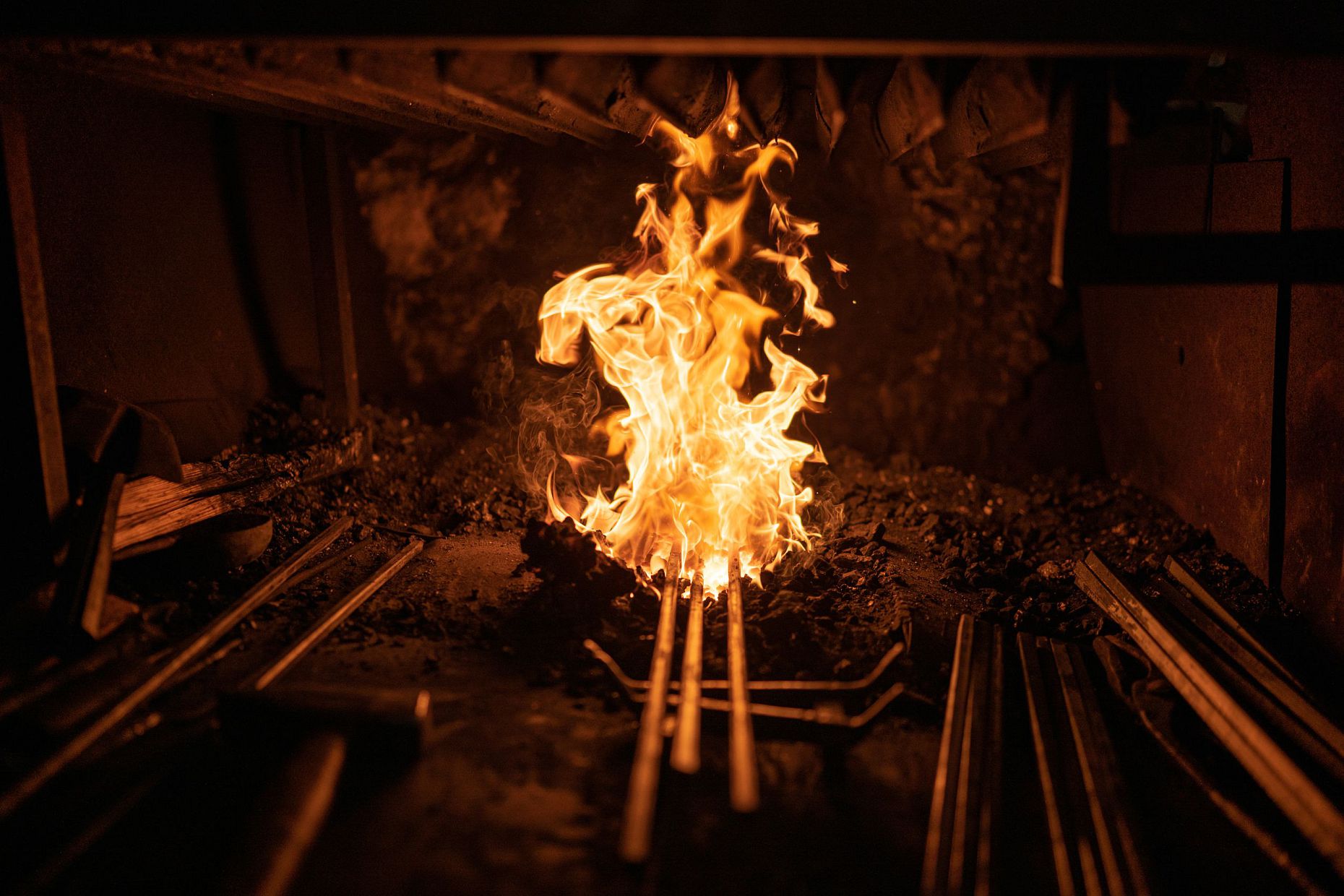
The fire blazes in the forge
Genuine craftsmanship: centuries-old tradition
In most cases, the material is iron or steel, which is heated in the so-called forge to such a high temperature that it can be worked with the tools. More precisely, the experienced blacksmith takes the red-hot piece of iron out of the furnace with tongs and places it on the anvil, on which it is beaten with a hammer until it has the right shape. Either manual hammers are used or the so-called air hammer, a stationary hammering machine whose blows can be controlled with the pedal. Sometimes this requires several operations, so the experienced blacksmith has several pieces of iron in the fire at once, which he works on alternately and puts back into the forge. Once the master is satisfied with his work, it is allowed to cool and harden.
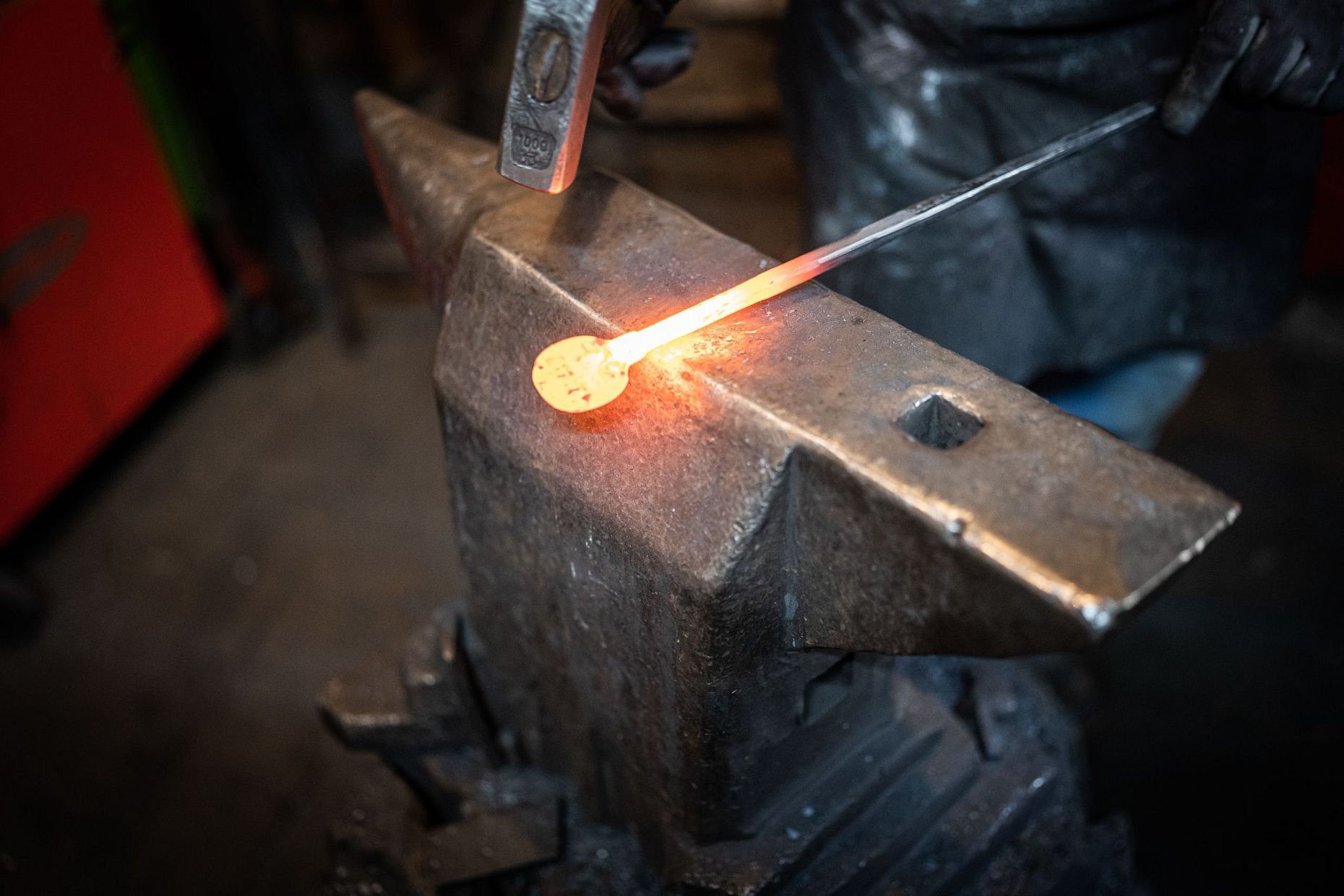
The glowing metal is hot enough to be shaped by hammer blows
An incredible abundance of different pliers and hammers hang on the walls of the dark forge chamber. "The tongs are the extended arm of the blacksmith," Alfons reveals. He made most of them himself. During our visit, Alfons is working on lampshades. His designs are popular and bear his own signature. "You don't make a crack with scrolls these days," he grins, and so the sprightly man in his mid-seventies has developed his very own style and furnishes modern, plain houses with his handmade pieces just as much as traditional ones.
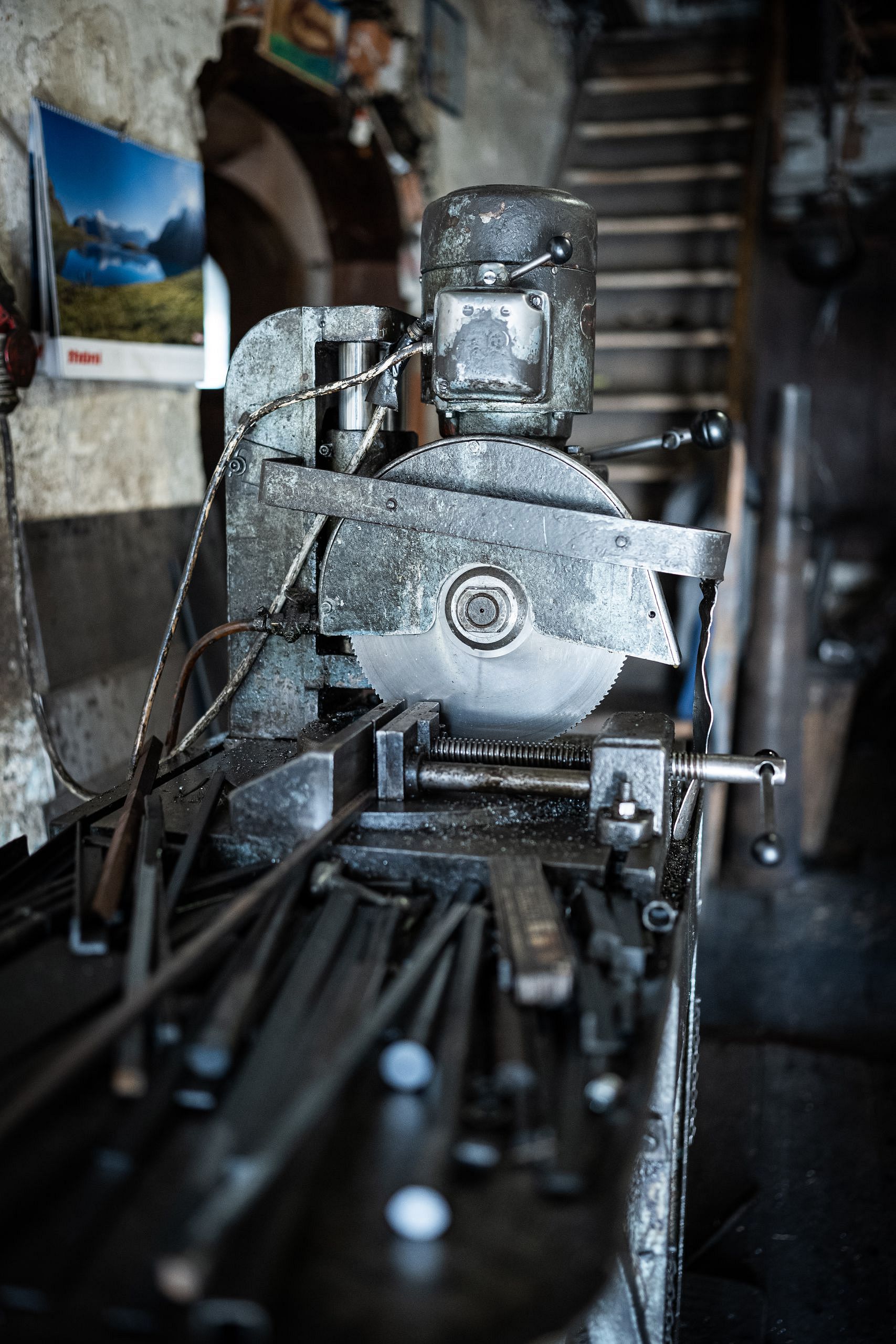
To make his unique pieces, the blacksmith works with many tools and machines
More than just a profession
Although he can look back on an exciting life at the age of 75, Alfons is still a long way from retirement. "That's how you stay in shape," says the passionate blacksmith and artist, who still has his trade registered. His work has made it into a wide variety of homes. "It's the design that makes it, you always have to adapt your designs to the existing building," Alfons is convinced. But no matter who knocks on Alfons' door as a customer, "I always treat everyone the same."
Among other things, he is proud of his street lamps in the village, which he forged 30 years ago and which still adorn the townscape of Mösern today. "Each one is a little different in terms of design," he says, "galvanized iron just has a long life." The masonry in which Alfons has set up his forge also has a long life. "The house was built in 1307 by Stamsern and rebuilt in 1668," says the blacksmith, who is well aware of the historic building. "At one time, the elementary school was also located in the house, so there are other windows installed here and in the room where my forge is today, there was originally a kitchen."
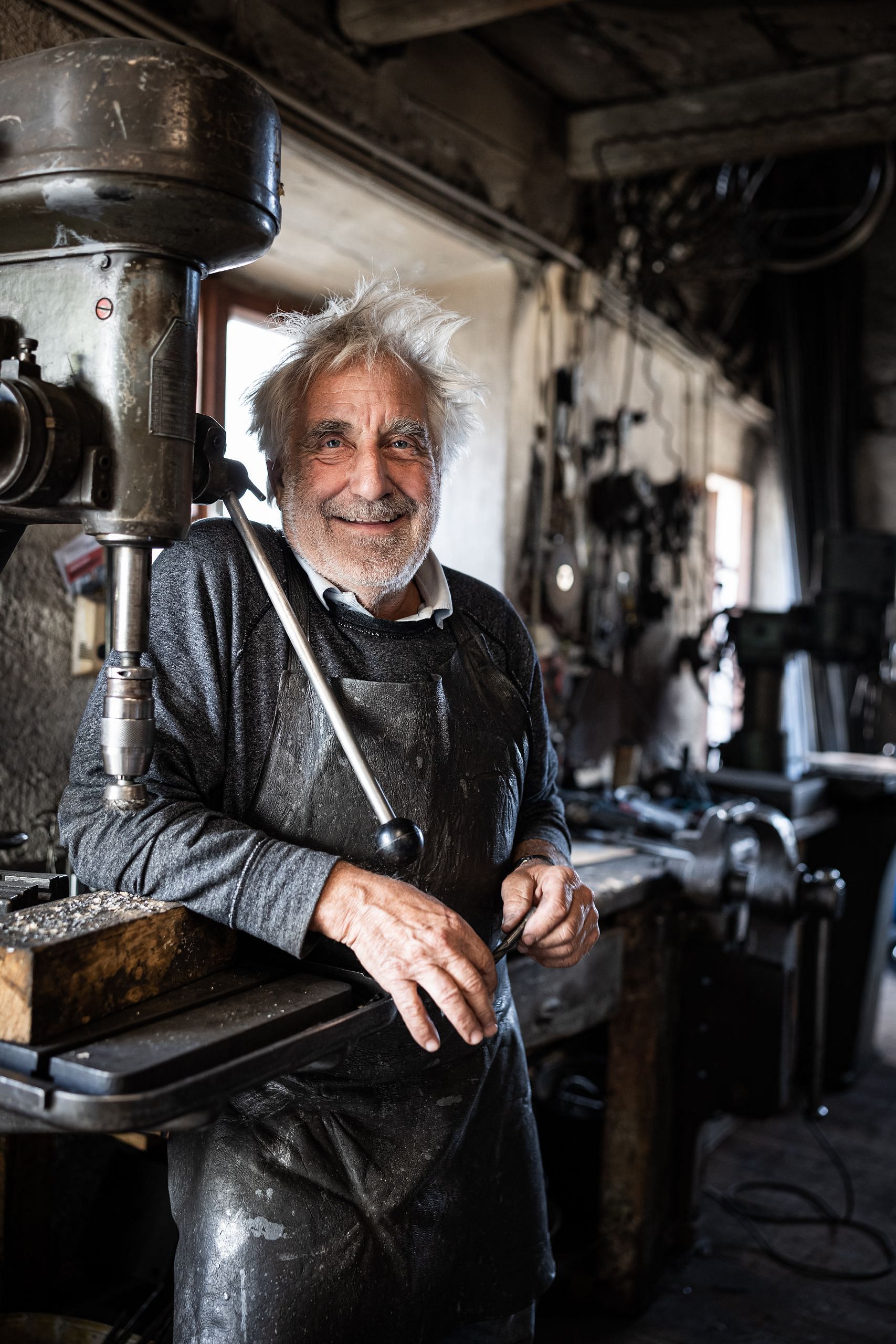
Blacksmith Alfons Neuner in his forge in Mösern
A life full of stories
You can literally feel the history in the time-honored walls, as if they wanted to tell a thousand stories. Even if the walls themselves cannot speak, Alfons has a few anecdotes from his life in store. This begins with his childhood, which he spent on the neighboring Spacklerhof farm and where he grew up with his six siblings. When languages in particular made life difficult for him at the grammar school in Stams, the youngster opted for an apprenticeship as a blacksmith with his master Toni Hiltpolt in Seefeld. "At first he didn't want to take me on, and then he wanted me to take over his shop," Alfons recalls today with a laugh. He founded his own forge at a young age shortly after his master craftsman's examination.
His feel for the material and his artistic creativity have always been reflected in his works and creations. In addition to traditional blacksmith work such as lamps, grave crosses or gates, Alfons' real passion lies in the creation of sculptures. "Art is actually my thing," he reveals, showing us a small selection of homemade sculptures he keeps in his former classroom. "I used to do an exhibition once a year with 15 to 20 sculptures," he says as we marvel at the larger and smaller works of art. His works also include the twelve-meter sculpture at the Landeck Tunnel or the restoration of the rose grate at the Meinhardinum in Stams. He also transfers this artistic skill to his designs of lamps or gates. And so it is his very own style and sense of proportion that make his work so sought-after.
In his private life, too, Alfons is a person with an affinity for art and likes to visit museums or galleries in his rare free time: "I like to travel to Vienna or even Spain for a good exhibition," admits the sprightly blacksmith. And off he goes again to his forge fire, after all there are still a few bars of iron to be forged into original Alfons Neuner lamps. In any case, Alfons doesn't seem to have run out of fun at work for a long time yet, and hopefully the fire of passion for his brazen works of art won't either.
Share
